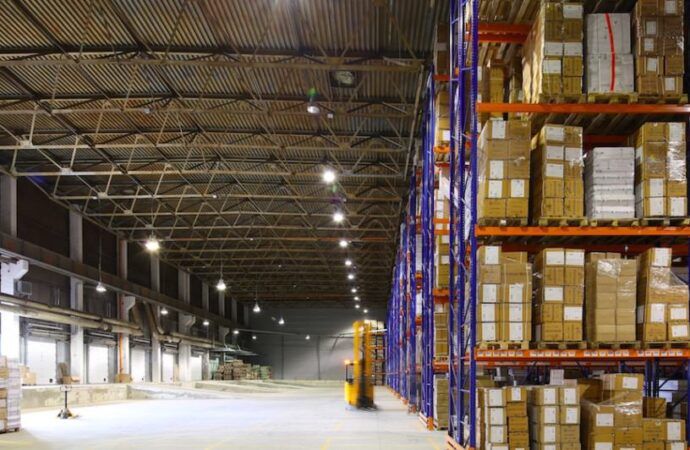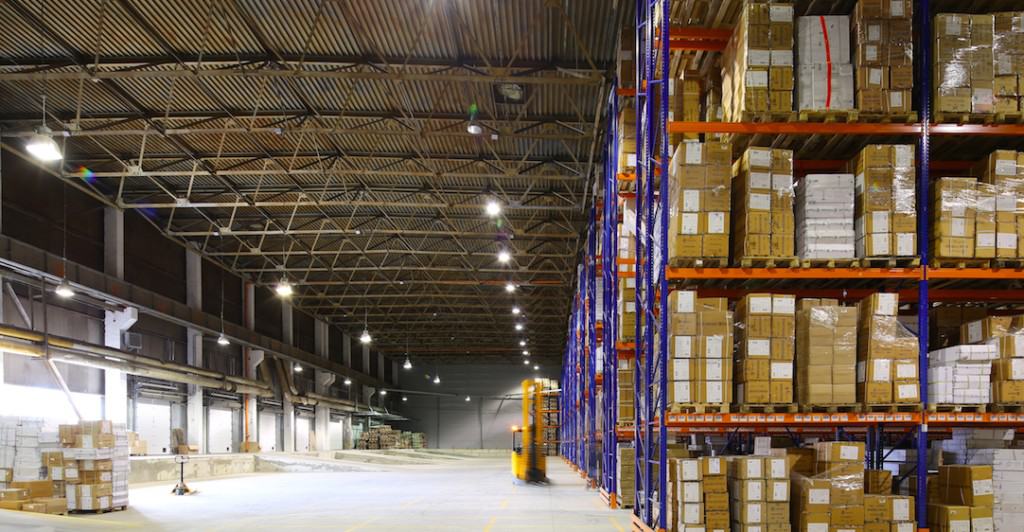What is a warehouse loan?
Contact Us

Warehouse loans are a particular form of commercial lending for manufacturing facilities. Lenders provide warehouse mortgages for a range of scenarios, such as buy, acquisition, and development, refinance, and cash-out refinance. Many kinds of warehouses operate and may be protected by such a loan, like light industry warehouses, cold storage warehouses, railway warehouses, supermarket warehouses, and wholesale delivery centers.
Banks, credit unions, and non-bank providers provide warehouse mortgage funding for investors. A borrower can get a buy mortgage for a warehouse with 10 percent down and cash-out refinancing is eligible for growth and can be at 100 percent LTC.

Warehouse mortgages can be applied for easily, with LTVs of 50 percent to 75 percent. Warehouse building loans are also eligible if a borrower is preparing to develop a new warehouse plant. We specialize in warehouse loans at Commercial Real Estate Loan Pros of Miami.
Warehouse finance will be used for the following purposes:
- Purchase
- Refinance
- Refinance to bring cash out of the property
- Acquisition and development
- Create or construct one
- Rehab and/or remodel
More About Warehouse Loans
Warehouse lending may more easily be interpreted as a way for a bank or related entity to supply funding to a borrower without spending its resources. A small or medium-sized bank might opt to use warehouse lending and to make money from origination costs and the selling of the loan rather than receive interest and fees on a 30-year mortgage loan.
In warehouse lending, a bank manages the application and acceptance of a loan thus obtains the funds for the loan from a warehouse lender. When the bank eventually offers the mortgage to another borrower in the secondary sector, it collects the funds that it then uses to pay back the warehouse lender. The bank benefits from this method by collecting points and origination fees.
Private lenders, insurers, credit unions, and hard money lenders approve proposals for warehouse funding. Applicants will be expected to provide complete reports of the property and themselves, as well as get an assessment performed in order to achieve the lowest interest rate. Borrowers who need their warehouse loan to close rapidly can seek no- or low-documentation loans, based upon the equity they have in the property. These loans usually give LTVs about 55-65 percent and will close within two weeks. Warehouse mortgage lending frequently takes the first place line, but certain lenders offer second mortgages as a means for homeowners to get the money that can be used to develop the property by expansion, remodels, landscaping, or other ventures. Hard money loans for warehouses are funded from non-banks and private lenders. They provide advantages, such as easy financing, fewer reporting, and the ability to handle borrowers with poor credit and non-conventional conditions. However, they do offer higher interest rates than traditional loans, lower LTVs, and usually feature shorter maturity terms. Warehouse hard money lenders may deal for investors who have FICO ratings as poor as 500 and can allow bank statements that show the borrower’s willingness to repay the loan instead of tax returns. Hard money loans are equity-based and give LTVs of 50 percent to 65 percent. Financing for warehouses is provided by hundreds of governments, private lenders, and non-banks. Our Lender Application will be used to locate all of the lenders in our directory who can finance your clients’ unique loan requests. The place is crucial no matter if you’re purchasing the property as an investment or using the premises to run your company. Banks will be looking at occupancy rates and other facets of the warehouse industry for the place where the premises are situated. Ideally, you’ll want to go for warehouses that are situated close to central business districts (CBDs) that have convenient access to decent infrastructure including major highways and motorways, all of which are important for delivery companies. The place has a beneficial impact not only on the valuation of the property but the profitability of the warehouse to draw tenants. Warehouse lending lets banks make mortgage loans, particularly small- and medium-sized banks that tend to make their money from origination fees and the selling of the loans rather than collecting interest and servicing the loan for 30 years. Often, warehouse loans need banks to have collateral, which is typically the bank's marketable securities and the loan documents showing that it made the loan and would sell it. How can I get funding for a warehouse?
What is a factory hard money loan?
Which lenders provide funding for warehouses?
Does the placement of the warehouse matter?
Why Does Warehouse Lending Matter?

What are the advantages of purchasing a warehouse to operate a business?
Will you require a warehouse loan to buy the property as owner-occupied? There are a variety of advantages of this strategy.
If your goal is to remain viable and own and operate the company forever, then buying, rather than renting, warehouse space could make more financial sense. Getting a fixed long-term commercial loan will give you more certainty and enable you to construct your operating expenditure around that fixed expense. On top of it, loan repayments may potentially wind up being close to paying rent instead. You may assert tax benefits on any expenses involved with buying, operating, and managing company space, including interest on the mortgage and property taxes. Having a warehouse loan instead of selling wasn’t really an error! You may potentially rent out a part of it to another tenant to produce extra revenue. In addition, once you fully outgrow the factory, you will keep the freehold and rent out the whole property while you pursue your company elsewhere. That’s one of the key advantages of having the freehold: even though the company reaches a tough patch, the property itself can typically maintain value and can even produce capital growth based on market conditions. If you simply enter into a leasing contract, there might be limits regarding what you will do for the property. Through possessing the property itself, you have more independence and protection. Fixed Costs
Tax benefits
Run a company and produce rental income
You have the right to make changes or repairs to the premises

What kinds of warehouses are there?
Standard warehouses have low building costs, typically characterized by box-shapes and no windows built out of concrete or colorbond. However, there are several various styles of warehouses out there based on the kind of company you’re running:
- Transportation and logistics.
- Manufacturing.
- Importing.
- Exporting.
- Wholesaler.
Speak to one of our experts at Commercial Real Estate Loan Pros of Miami to receive a
Warehouse loan tailored for you.
There are so many areas or regions where we offer these services with most of them being cities.
However, if you need any of these services, you need to contact us. The list below comprises the areas where we offer these services.
We service all counties and cities throughout South Florida. However, if you need any of these services in other cities throughout the state of Florida, please contact us. See what services we offer below:

